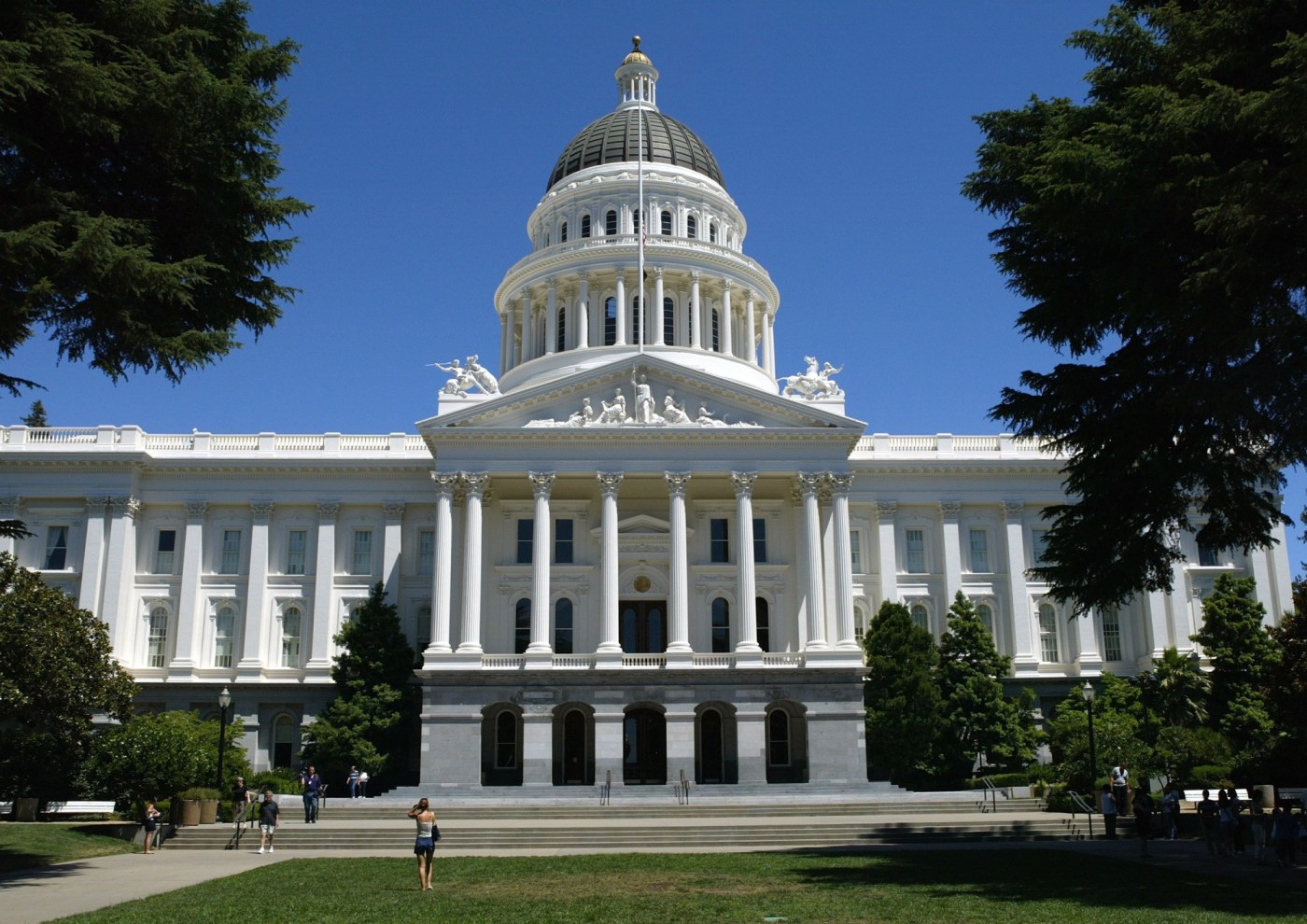Legislators are officially back to work in the statehouse this week — and redistricting is obviously top of mind.
Gov. Gavin Newsom last week officially launched his campaign for mid-cycle redistricting for California’s congressional maps, an effort that needs legislative approval to create new boundary lines and call a special election. Hearings on that legislative package are scheduled this week, and it’s largely expected to get a quick OK from the legislature’s Democratic majority.
As veteran lobbyist Chris Micheli is telling his clients: Redistricting, this week, is sucking the proverbial oxygen out of the room.
But legislators have about four weeks left in the session to pass bills — and there is a whole lot of other, also important, legislation still in play.
“There’s a lot of stuff out there,” said Micheli.
That includes an effort from Sen. Catherine Blakespear, a Democrat who represents communities in southern Orange County, to renew a tax incentive for homeowners and small businesses who install solar panels. Blakespear’s bill renews a tax exclusion that prevents the cost of solar panels and storage from being added to a building’s value when it’s assessed for property taxes through 2031.
This bill has seen relative bipartisan support and is in the Assembly’s Appropriations Committee.
Also still in play is a bill to help parenting foster youth by adjusting what’s called the infant supplement, a payment from the state that helps a young parent who lives with their child and is still in the foster care setting. Someone can stay in the foster care system until they reach 21 years of age, but their child is not born into the system. The infant supplement is generally given to the youth’s caregiver on their behalf, and it has not been adjusted since 2016.
From Assemblymember Diane Dixon, R-Newport Beach, the idea is to keep families together while also providing support to parenting foster youth. Her bill has also seen large bipartisan support and is awaiting action in the Senate Appropriations Committee.
Legislators are still considering a bill that would mandate anyone convicted of driving under the influence to install a device on their car that would prevent them from starting if alcohol is detected. Spearheaded by Assemblymember Cottie Petrie-Norris, D-Irvine, the bill extends California’s law that requires interlock initiation devices or breathalyzers for repeat DUI offenders and some first-time offenders. That law is set to expire at the end of the year, and she wants to extend it indefinitely and expand it to include anyone convicted of a DUI, including first-time offenders.
Sen. Bob Archuleta, whose district includes Brea and Placentia, is a co-author of the bill, which has gotten broad bipartisan support.
Then there’s also the battle over reauthorizing California’s cap-and-trade program, an emissions trading system meant to help the state reach its ambitious climate goals.
The issue, which has bedeviled legislators this session and is one of the most closely watched items left on the legislative agenda this year, is largely over whether to make changes to the landmark program, rather than over whether to extend it overall. It is set to expire in 2030.
And that’s not to mention the host of bills related to wildfires that legislators scrambled to unveil following January’s devastating fires in the Los Angeles area. Or efforts to rein in offshore drilling or a proposal to increase in-state drilling. Or the bevy of bills regulating artificial intelligence and increasing privacy protections.
“As we embark on the final month of session, I usually think there are just a daunting number of bills and issues for the legislature to address,” Micheli said. “But each and every year, they manage their way through it. Today, it seems daunting, but I know at the end of the four weeks that the legislature will get its tasks done and make its way through just over 1,000 bills for their consideration.”
But for now, it’s all about redistricting.
Legislative Democrats on Friday evening announced a state constitutional amendment calling a special election on Nov. 4 and unveiled draft maps that make several changes to the state’s congressional boundary lines. Legislation should be published today.
“This is about more than drawing lines on a map; it’s about drawing a line in the sand to stop Texas and Trump from rigging the election,” said Senate President Pro Tem Mike McGuire, D-North Coast. “This is about protecting the people of the Golden State, our democracy, and making sure voters have a say.”
Two-thirds of the legislature needs to approve the special election. The Democratic majority in the statehouse is largely expected to OK Newsom’s request.
But that doesn’t mean all the details are finalized, noted Matt Rexroad, an attorney and Republican redistricting consultant.
“I’m curious what this ballot question looks like,” Rexroad said. “Does it say, ‘if Texas does this, then we’ll do this,’ or does it say, ‘if any state redistricts, then we will’?”
Say a federal judge in a Republican-controlled state forces redistricting, for reasons that do not have to do with partisan efforts or President Donald Trump’s requests to red states to increase the GOP’s chances in the upcoming midterm elections, for example. Would that still trigger redistricting in California?
“My understanding is that there’s contingency language on there (the ballot measure). I’m curious what it’s contingent upon,” said Rexroad, who noted he believes any of the partisan mid-decade redistricting efforts ongoing around the country are mistakes.
Both the Assembly and Senate elections committees have hearings scheduled for 9:30 a.m. on Tuesday. Democratic legislative leaders said they anticipate floor votes to happen two days later.
The legislature is also soliciting public input on redistricting through an online portal, selc.senate.ca.gov/redistricting-public-comment. Leadership said it had received more than 3,000 comments already as of Friday evening.
Staff writer Linh Tat contributed to this report.
